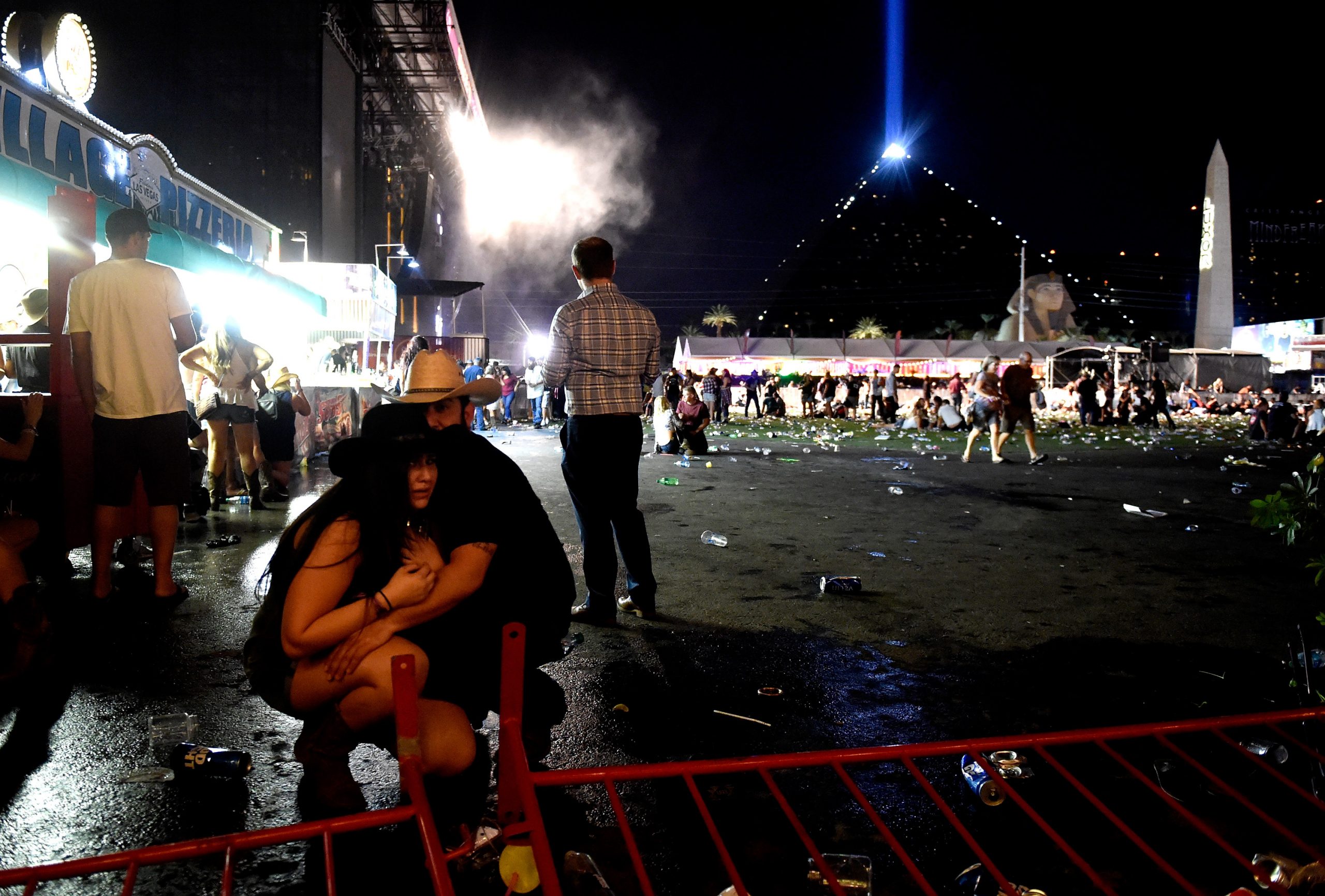Last year, the National Rifle Association spent more money fighting a push for a universal background check for gun purchases in Nevada than it did on any Senate or House race.
There’s no indication that Question 1, which passed by a razor-thin margin, would have factored into Sunday night’s rifle attack on the Las Vegas Strip, which left 59 people dead and an estimated 527 injured in the worst mass shooting in American history. The gunman, identified as Stephen Paddock, purchased at least some of his guns from a licensed dealer and passed a background check; it does not appear that he was the sort of prohibited purchaser, seeking unvetted gun show deals, that expanded background checks are meant to thwart.
Read Next

Mass Shooting on Las Vegas Strip Leaves More Than 50 Dead
But the NRA’s all-out effort to sink the ballot initiative shows just how far it will go to try to beat back new gun restrictions. The group’s state-level operation tends to fly below the radar, but is the key to its power, continually expanding the boundaries of where it’s acceptable to carry guns. Over the last decade, the NRA has successfully worked to allow firearms on college campuses, and into bars, churches, day care centers, and government buildings.
The gun group poured more than $6.6 million into opposing Question 1, making it the NRA’s second-largest campaign expenditure of 2016. The only contest that drew more funds from the gun-rights group was the presidential election, in which it invested over $30 million in support of Donald Trump.
After the measure passed, the state’s attorney general, Adam Laxalt, a Republican, issued an opinion stating that the law was “unenforceable.” The law was supposed to go into effect in January, but so far this year the FBI has not conducted a single background check on a private gun sale in the state.
Before the ballot, Laxalt openly opposed the measure. In an ad produced by the NRA, he claimed it would turn “well-meaning Nevadans into criminals.”
Across the country, just under 4,000 state lawmakers have a grade of A- or better from the NRA. The figure represents about 54 percent of all state legislators, almost all of them Republicans.
